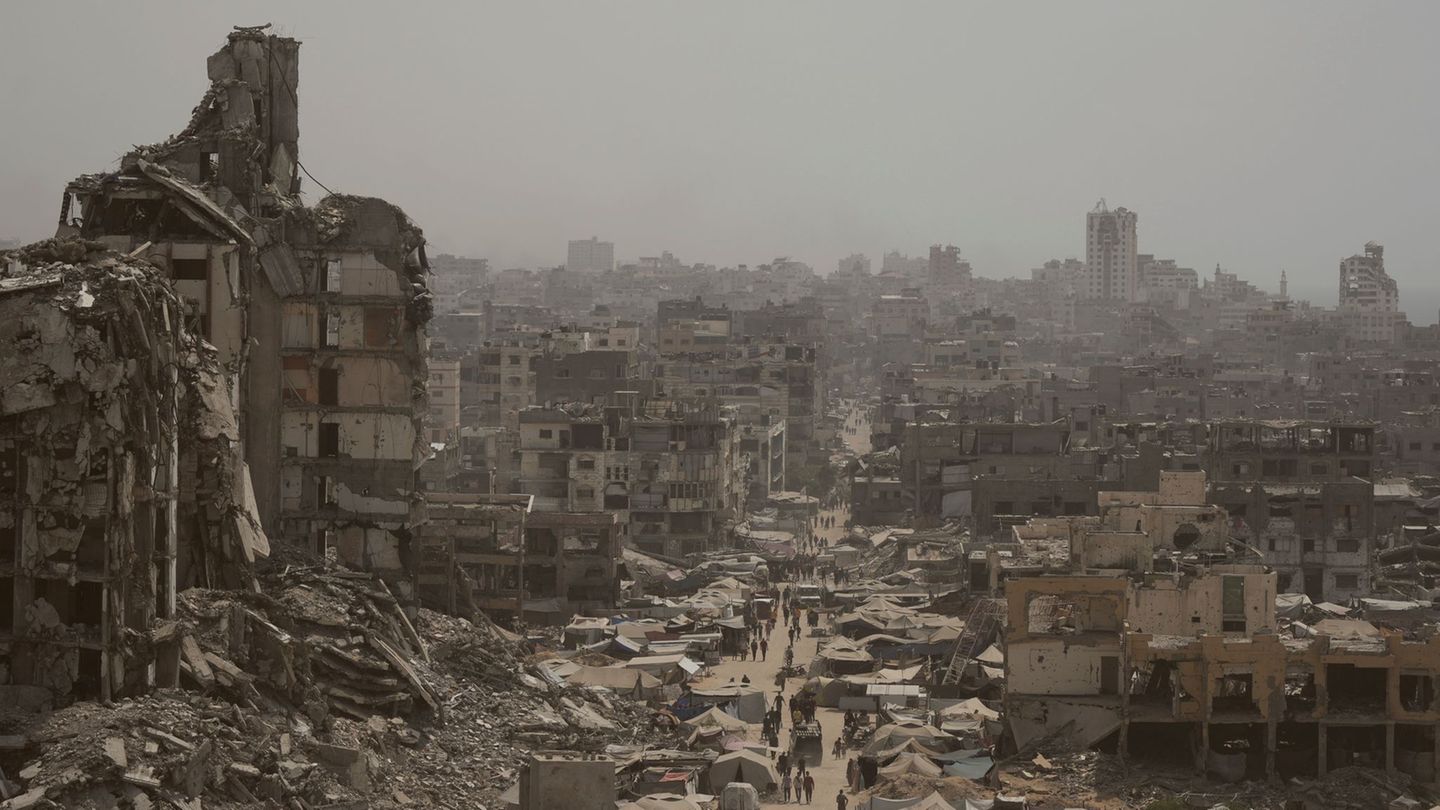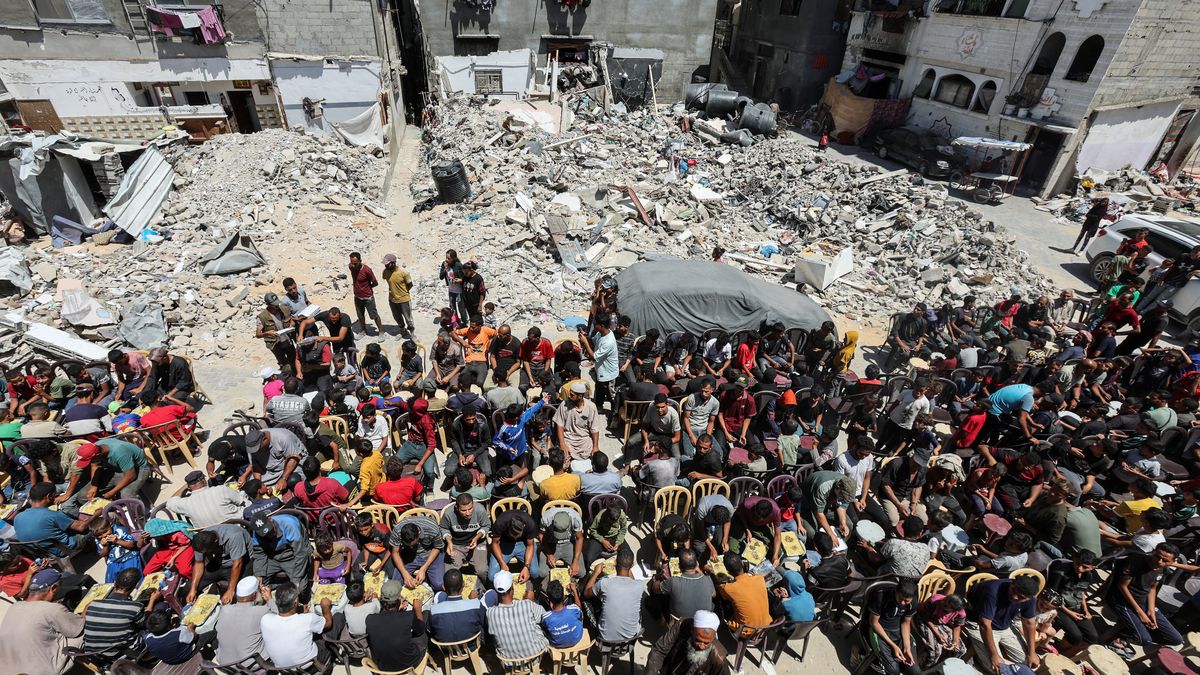Who will have to replace their old gas heating soon? Where there is still no heat planning in cities, owners have more time according to the traffic light plans. A survey shows: There are quite a few of them.
The majority of German municipalities are still in the early stages of planning how to heat in a climate-friendly manner in the future. This is the result of a survey by the German Press Agency in the federal states. Densely populated metropolises such as Munich, Hamburg or Cologne are in the lead.
According to the plans of the traffic light government, municipal heat planning is the linchpin of the planned obligation to replace old oil and gas heating systems. As long as there is no municipal heating plan on site, gas heaters should also be allowed to be installed when replacing the heating system – if they can be converted to hydrogen.
The German Association of Towns and Municipalities welcomes the link: “It would be a waste of resources if the building owners exchanged their heating and replaced it with a heat pump, for example, and a few years later the municipality wanted to establish a district or local heating network,” said association spokesman Alexander Handschuh .
By 2028 at the latest, municipalities should have recorded how their buildings have been heated so far and how this should be done in a climate-neutral manner in the future. District heating should play an important role in this.
District heating should go green
District heating is heat that is not generated in the residential building, but comes from a power or heating plant in the area. Water is usually heated there, which is then fed into the houses through insulated pipes. According to current plans, by 2030 the heating networks, which have so far mainly been fed with fossil fuels, should use at least 50 percent renewable energies or waste heat. They must be completely greenhouse gas neutral by 2045.
According to plans from the traffic light coalition, the heat planning of the municipalities should be anchored in law in the future. In some states – including Lower Saxony, Schleswig-Holstein, Hesse – some cities are already legally obliged to submit a heating plan in the next few years.
The heating dispute in the traffic light has led to a lot of frustration, said Schleswig-Holstein’s Environment Minister Tobias Goldschmidt (Greens). “Schleswig-Holstein will not be put off by the traffic light hiccups in Berlin on its way to becoming the first climate-neutral industrial state.” A guarantee program worth two billion euros for the construction of municipal heating networks by public utilities is in the works.
Some cities ready by 2028
Elsewhere, for example in Bavaria or North Rhine-Westphalia, people rely on voluntariness. According to the community day in Bavaria, there are currently plans for a few hundred of the 2,000 or so communities. According to the assessment of the NRW City Council, the local municipalities are currently busy analyzing the situation and collecting data. “From our point of view, it seems realistic that the cities can be ready by 2028,” said a city council spokesman. The NRW state company NRW.Energy4Climate names Mönchengladbach and Cologne, among others, as model municipalities.
Mönchengladbach is working flat out on heat planning for private households and hopes to be able to complete its municipal heat planning by the end of the year, said a city spokesman. Previously, they had dealt with the heating and heat planning for around 450 municipal buildings – “from the town hall to the last pavilion”.
Cologne expects the results of an energy use plan “in mid-2023” and then plans concrete measures. In Munich, it is pointed out that planning began a year and a half ago and that “the changeover to a climate-neutral heat supply in Munich can be implemented much faster than is supported by the federal government”.
Hamburg has had a city-wide heat register since 2016, which lists street-by-street locations where district heating is possible. A spokesman for the environmental authority said that suitable areas for the expansion and densification of heat networks are currently being identified. Berlin started heat planning last year and wants to be finished in 2026.
In some federal states, heat planning only starts when the federal government initiates it. “We will implement the federal law accordingly,” said Saarland. Municipalities that have already completed heat planning are not known. There are also no legal obligations in Thuringia, Saxony-Anhalt and Rhineland-Palatinate.
The German Association of Towns and Municipalities does not assume that municipalities will delay heat planning so that the replacement obligation only takes effect later. “The municipalities will draw up the municipal heating plans as quickly as possible, not least to give the citizens planning security as to whether they can count on a connection to local or district heating networks,” said the spokesman.
Source: Stern




